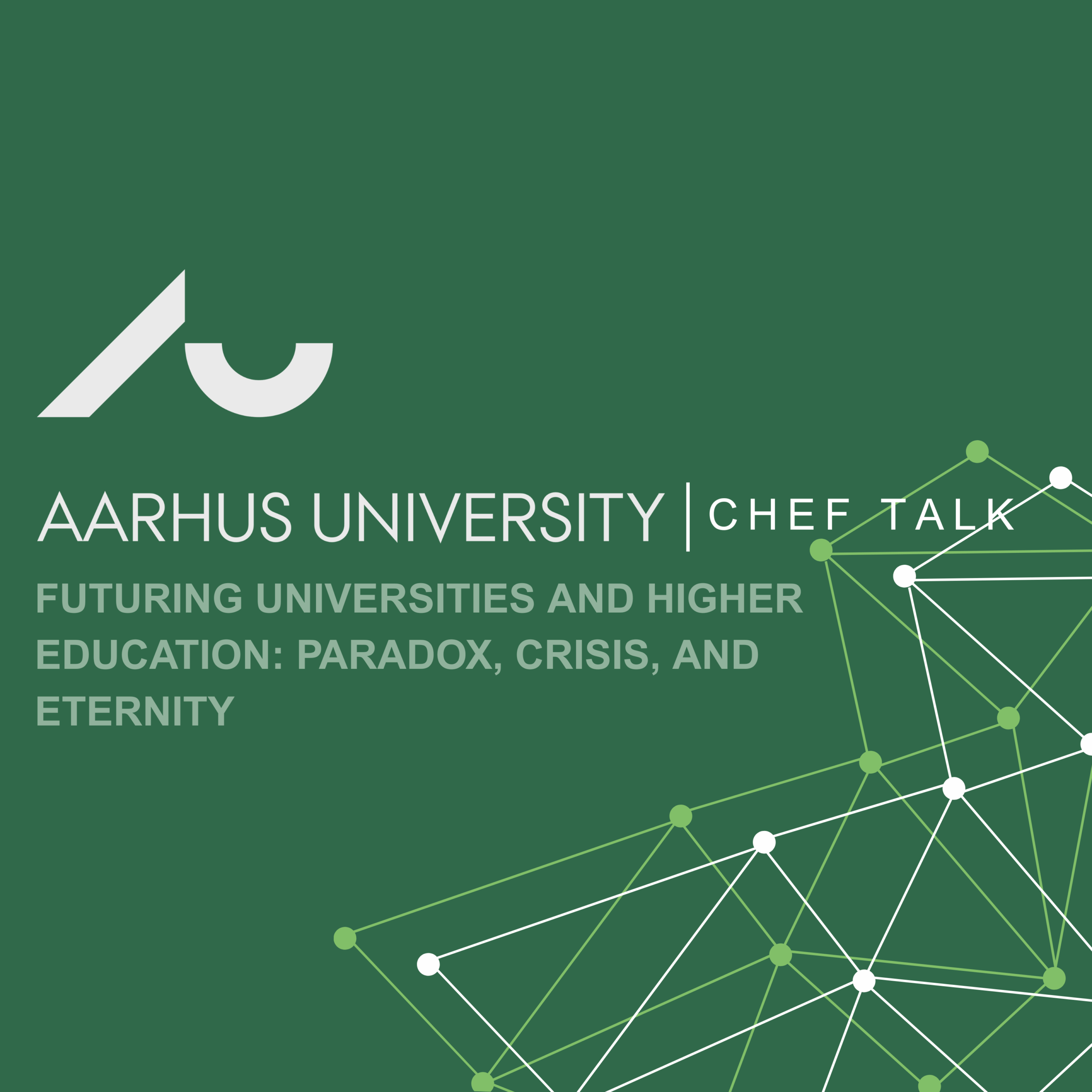
CHEF Talk 'Futuring universities and higher education: paradox, crisis, and eternity'
Webinar, online on Zoom
20. nov 2025, KL. 15.00
CHEF Talk: ‘Futuring universities and higher education: paradox, crisis, and eternity’
The webinar will start with three short presentations by each of the three speakers, followed by discussions in groups and/or plenary with the audience. The three presentations are:
Paradoxes of ”Future”
By Professor Jakob E. Feldt, Roskilde University
This brief presentation reflects on a somewhat tidal proposition: modern higher education used to be guided by the past. Over the last 10-15 years, we have seen a radical shift. Now, higher education is guided by the future. Surely, modern HE has always been about the future, but the path to the future was from the past; its experiences, experiments, methods, disciplines, books, art forms, and technologies. We are no longer on that train; now, the future train is heading toward us. Obvious
paradoxes are included. Key questions about the consequences of different modes of ”the future” arise, closely linked to questions about ”the future” as governance, policy, and practice.
The future within us
By By Laura Louise Sarauw
This talk centres on imaginaries of the future that shape the present governance of universities through metaphors of perpetual crisis. Drawing on a Foucauldian understanding of power, it explores how crisis-oriented futures produce the ideal of the resilient, self-regulating, and compliant subject. Using Danish universities’ strategic development contracts as an example, it shows how institutional priorities are increasingly framed as necessary responses to multiple, overlapping crises—climate, AI, and well-being. Each of these redefines how we relate to nature, to technology, and ultimately to ourselves. The growing emphasis on well-being, resilience, and lifelong learning suggests that crisis is no longer merely around us but also projected from within, positioning the self in relation to predefined visions of the desirable subject. In this way, the desired outcome of education and research is not transformation, but adaptation.
The pedagogical impossibility of the future
By Søren S.E. Bengtsen, Associate Professor, Aarhus University
In contrast to times and temporalities projected and enacted in and through policy and governance, the educational and pedagogical practices in universities and higher education reveal a different picture. Drawing from a stance in Søren Kierkegaard’s philosophy, I will discuss how the experience and reality of time may become alien, strange, and even warped in the embodied pedagogical situation. Here clock-time may stop entirely, or become obsolete, and give way for the experience of the ‘moment’ (‘Øjeblikket’). In the pedagogical moment, time may fluctuate and morph between embodied experiences of joy, focus, boredom, and uncertainty – stretching into eternity, or lapse and evaporate in an instant. This way seen, the future disappears altogether and gives way to the pedagogical ‘now’.
Resulting from the different times and temporalities projected and enacted historically, structurally, and existentially, as discussed in the three presentations, we open for an understanding of ecological time (Barnett), with multiple, parallel, intertwined, and co-existing (but also sometimes competing and conflicting) time-realities.
Practical information
Date and time: November 20, 2025, at 15.00-16.00 (CET / UTC+1)
Place: Webinar, online on Zoom
Jointly hosted by the special interest group (SIG) ‘Higher Education Policy and Practice’ (HEPP) under the Danish Network for Educational Development in Higher Education (DUN) and Centre for Higher Education Futures (CHEF), Working Group 2: ‘Universities, Democracy, and Citizenship’.
Chaired by Søren S.E. Bengtsen, Co-Director of CHEF
Register: Here for free, or click on the green boxes.